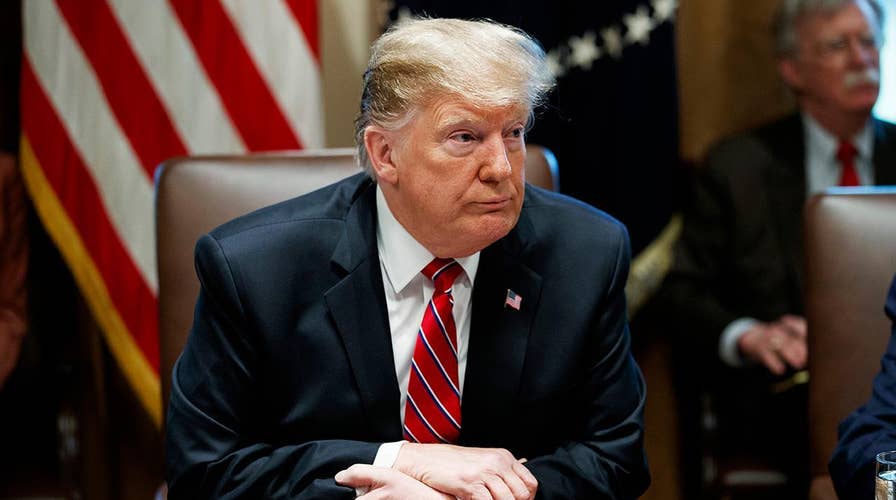In order to avoid another lengthy government shutdown over funding for a border wall, President Trump decided to declare a "national emergency" to complete his oft-repeated campaign promise.
“We’re going to confront the national security crisis on our southern border … one way or the other, we have to do it,” Trump told reporters on Feb. 15.
The White House is expected to announce it's moving $8 million in currently appropriated or available funds toward construction of the wall along the U.S.-Mexico border.
Trump has repeatedly demanded more than $5 billion for a wall along the U.S.-Mexico border. When he campaigned for president, he often promised Mexico would pay for the wall. Democrats have refused to capitulate to Trump's budget demands, and House Speaker Nancy Pelosi has rejected what she calls an "immoral and hateful obsession" with building a border wall.
The White House said Trump's taking other executive actions to "ensure we stop the national security and humanitarian crisis at the border."
What is a national emergency?
Outlined in the National Emergencies Act of 1976, the president has the authority to declare emergencies, thus unlocking certain provisions, when the country is “threatened by crisis, exigency, or emergency circumstances” other than wars or natural disasters, a 2007 report from the Congressional Research Service (CRS) explains.
TRUMP’S BORDER WALL: A LOOK AT THE NUMBERS
Some of those provisions include the ability to seize commodities or property; control production, transportation and communication; institute martial law or restrict travel, according to the report.
Can Trump use it for a border wall?
Trump’s continued reassurance that he could declare a national emergency to build the wall has legal scholars and lawmakers at odds over whether it would even be possible.
“Presidents have the authority to defend the nation,” acting White House chief of staff Mick Mulvaney asserted.
Rep. Adam Smith, the new Armed Services Committee chair, told ABC’s “This Week” that Trump would have the ability to make such a move – earning him a shout-out from the president on Twitter – but noted it would almost certainly be met with legal challenges.
As Yale Law professor Bruce Ackerman pointed out in a column for The New York Times, Congress does have the ability to reign in an emergency declaration. Although Republicans control the Senate (and Democrats have the House), Ackerman argued it’s still possible for lawmakers to reject the declaration.
PARTIAL GOVERNMENT SHUTDOWN WORRIES ANTI-SEXUAL VIOLENCE ORGS AS FUNDING RUNS OUT
“Since President Trump’s ‘emergency’ declaration would be a direct response to his failure to convince Congress that national security requires his wall, it is hard to believe that a majority of the Senate, if forced to vote, would accept his show of contempt for their authority,” he said.
One statute, 33 U.S. Code § 2293, says: "Reprogramming during national emergencies," permits the president to "apply the resources of the Department of the Army’s civil works program, including funds, personnel, and equipment, to construct or assist in the construction, operation, maintenance, and repair of authorized civil works, military construction, and civil defense projects that are essential to the national defense."
Another law, 10 U.S. Code § 2808, dictates: "Construction authority in the event of a declaration of war or national emergency," permits the secretary of defense, in a presidentially declared emergency, to use "funds that have been appropriated for military construction" for the purpose of undertaking "military construction projects."
Can we point to history?
During the Korean War, President Harry S. Truman sought to take control of the country’s steel mills in an attempt to circumvent a planned nationwide strike among workers through an executive order.
But the Supreme Court ultimately ruled in Youngstown Sheet & Tube Company v. Sawyer that the president did not have such authority.
CLICK HERE TO GET THE FOX NEWS APP
“Look, if Harry Truman couldn’t authorize the steel industry during wartime, this president doesn’t have the power to declare an emergency and build a multibillion-dollar wall on the border,” Rep. Adam Schiff, the Democratic chair of the Intelligence Committee, told CNN.
Fox News' Gregg Re, Brooke Singman and The Associated Press contributed to this report.













































